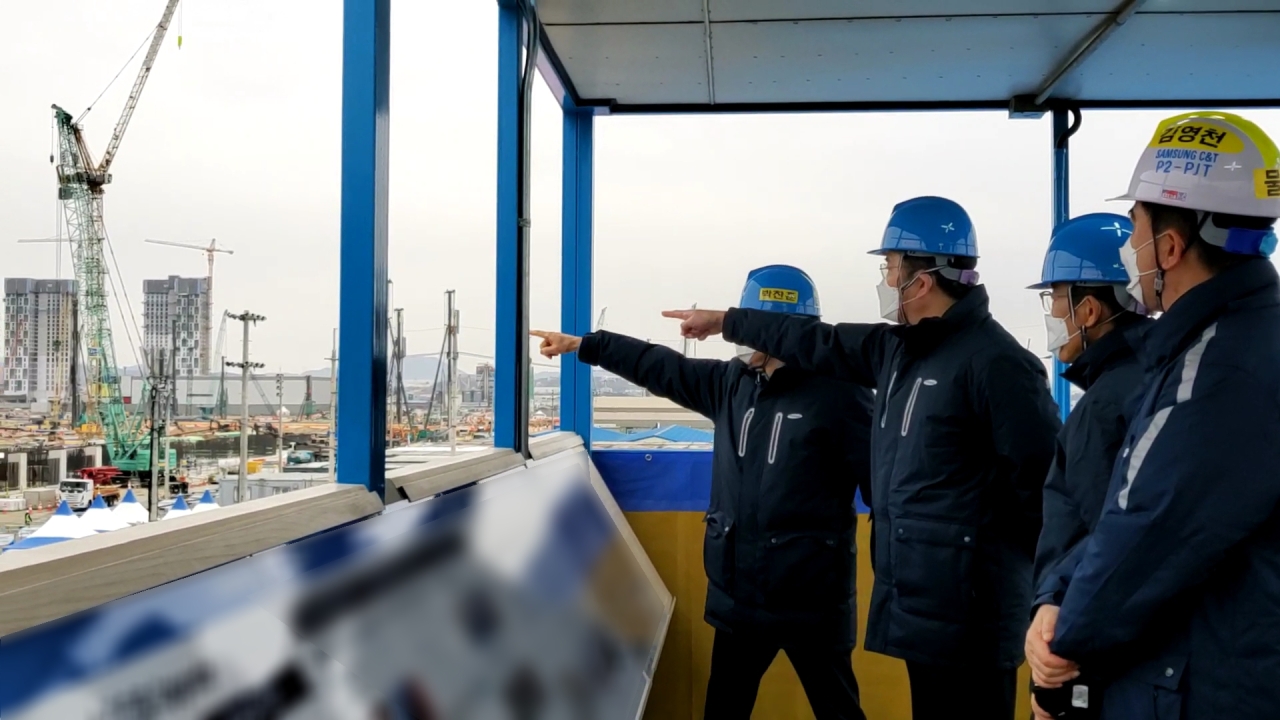[News Analysis] Will Lee’s release turn tide for Samsung?
Samsung expected to expedite major decisions to fend off rising challenges in chip industry
By Song Su-hyunPublished : Aug. 9, 2021 - 20:03

With its de facto chief Lee Jae-yong set to be released from jail this week, attention is turning to the fate of Samsung Electronics in its mission to become the world’s No. 1 integrated device manufacturer amid a heightening race for leadership in the global chip market.
With a void at the top leadership, the IT giant has been suffering from apparent delays in its decision-making process, affecting significant investment plans. Lee’s return is expected to expedite the firm’s internal decision-making process, as it seeks to cement its position in the semiconductor industry and seek new businesses for the future.
“Expectations are rising again within the company that Lee, with his global networks, could kick-start large investments and M&As,” said an industry insider. “It would restore investors‘ and consumers’ trust in Samsung‘s future.”
The most urgent task for Samsung is to finalize the US investment plan that will ramp up its production and presence in the US both by winning powerful US clients like Qualcomm, Google and Facebook and keeping its rivals Intel and TSMC in check.
It has been more than seven months that Samsung was rumored to be planning a new chip foundry in the US, but a final decision has been put off. Samsung wasn’t able to announce a final version of the plan even during President Moon Jae-in’s visit to Washington in May. At the time, the company’s Vice Chairman Kim Ki-nam of the semiconductor division mentioned Samsung was to invest around $18 billion in the US for a chip plant as he accompanied the president on the trip, but not further details.
Samsung is still weighing incentive offers from five US regions, including Texas, Arizona and New York before finalizing its location.
The new US plant would be crucial for Samsung to keep up with its Taiwanese rival TSMC in its foundry business.
Taiwan’s TSMC that has kept over 50 percent of the global foundry market has announced it is investing more than $100 billion for the next three years. In Arizona, the Taiwanese firm is building five new factories, according to its announcement in May.
Amid the current dearth of chips affecting various industries across the world, the capacity to produce sufficient chips has become highly sought-after.
The unrivalled US processor developer Intel is also jumping into the foundry market by planning to build a new manufacturing plant.
Intel is also rumored to be preparing to acquire Global Foundries, a smaller foundry firm owned by an Abu Dhabi fund, to expand its chip manufacturing capacity.
“Timing and speed are important factors in the chip race,” an industry official said. “The chipmakers around the world are speeding up their investments. Lee’s return would help speed up the decision-making process at Samsung.”
“It is true that Samsung’s force for decision-making has been undermined due to Lee’s absence,” said Lee Chang-han, vice chairman of Korea Semiconductor Industry Association. “Investments in the semiconductor industry, which take massive amounts of money, desperately need the decision of someone who is in a position of responsibility.”
Samsung has not announced any sizeable M&A plans since its Harman takeover in 2016, which was led by Lee Jae-yong.
The company said in February it was seriously considering making an acquisition deal in three years, but any details are unlikely to be released unless Lee returns to management.
In 2018, Lee announced a plan to invest 171 trillion-won by 2021 to make Samsung the top player in the system-on-chip market by 2030.
But executions of the related plans have been held back for the last seven months, with no announcement of a major achievement. It is trying to expand its presence in the mobile processor market with its Exynos chipset, and increase sales of automotive image processor ISOCELL.
Samsung is also facing new risks from the mobile business after the heyday of the flagship Galaxy S series.
Once the world’s largest smartphone vendor, Samsung sold 13.5 million units of Galaxy S21 series from January to June, according to data by Counterpoint Research. The sales volume was 20 percent less than the predecessor’s record at 17 million last year.
China’s Xiaomi rose to the top spot in the overall smartphone market share last month, beating both Samsung and Apple in the second quarter, according to data by market researcher Canalys.
“Samsung would have to find a solution to the stagnating smartphone market either by going for the high-end market to compete against Apple or by going aggressively in the low-end market to take down rivals like Xiaomi,” an industry official said.
(song@heraldcorp.com)








![[Graphic News] More Koreans say they plan long-distance trips this year](http://res.heraldm.com/phpwas/restmb_idxmake.php?idx=644&simg=/content/image/2024/04/17/20240417050828_0.gif&u=)
![[KH Explains] Hyundai's full hybrid edge to pay off amid slow transition to pure EVs](http://res.heraldm.com/phpwas/restmb_idxmake.php?idx=644&simg=/content/image/2024/04/18/20240418050645_0.jpg&u=20240419100350)







![[KH Explains] Hyundai's full hybrid edge to pay off amid slow transition to pure EVs](http://res.heraldm.com/phpwas/restmb_idxmake.php?idx=652&simg=/content/image/2024/04/18/20240418050645_0.jpg&u=20240419100350)

![[Today’s K-pop] Illit drops debut single remix](http://res.heraldm.com/phpwas/restmb_idxmake.php?idx=642&simg=/content/image/2024/04/19/20240419050612_0.jpg&u=)